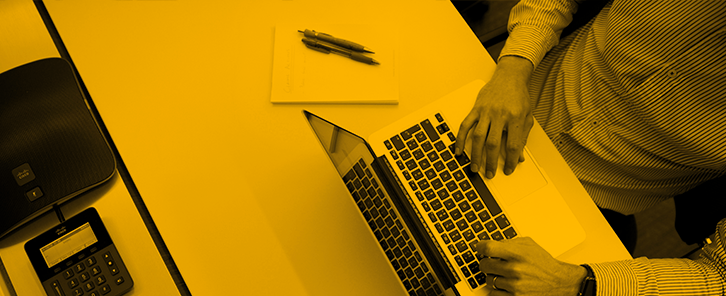With online scams, identity theft and data breaches on the rise, internet users are becoming increasingly wary and it seems like security and trust in the web is at an all-time low, now is a perfect time to gain an understanding of what makes a trustworthy and credible website.
According to a Pew Research study, by 2026 more than a billion people are likely to join those already using the Internet and usage will no doubt spike this year due to people working from home and the increase of e-commerce and e-learning. While this leads to a great boom in commerce, idea-exchanges and innovation, it can also lead to “more criminal exploits and…institutional incursions impacting more people, thus less trust.”
Below are 7 things to keep in mind when getting in-tune with the rules of reliability.
1. Double check the URL and domain name.
You should always read and check the URL before you click on a website – be it a search engine’s results page or an e-mail. Always make sure it represents a trusted organization like a government agency, nonprofit, foundation or university.
If you are planning to enter personal information, like a credit card always check that the website offers a secure connection. Ensure the link begins with https://. That extra “s” before the colon means the website relies on a secure connection that has better protection from hackers than the usual http://.

2. Trust seals and Secure Connections
A trust badge or trust seal is a symbol that is placed on a website that ensures visitors to that page are legitimate and that all data is collected through a secure third-party service provider. The trust seal company that agrees to place their badge on a website confirms that the business is authentic, users then trust that all processes taking place on that website are safe and secure.
There are multiply safety badges from web companies like MacAfee and the Better Business Bureau. Nowadays, there are newer badges like Google Trusted Store and Shopify, that are also credible sources. If in doubt, you can contact the issuing organization to see if that site is registered with them.

3. Is the site credible?
When you start browsing, do another round of vetting before you cite, share or purchase from the website. You will be able to get a sense of credibility the second you land on the homepage. If it looks clunky in design, this could be a red flag. These days anyone can hire a professional web designer and churn out content, so always closely review the quality of content. The proof is in the proofreading. If you’re seeing typos, grammatical errors and even inconsistent spacing between words and paragraphs, you might want to steer clear and leave the website altogether.
4. Who’s the author?
Who is writing the content? There’s a three-step process in confirming someone’s expertise.
i) Read the bio page. There should always be a page highlighting who the author or team is behind the website, listing their credentials.
ii) Look for specifics. Anyone can claim they are a “world-renowned expert” so double check the bio for specifics. For example a bio such as “David Lowe is a serial entrepreneur, as well as an investor and owner of a diversified portfolio of innovative digital companies. He’s a consultant and well-regarded expert in the field of technology.” This has an abundance of vague terms paired with a lack of specifics. The bio should state, which companies he started? What makes him an expert? Does the biography link to these real and existing companies or publications?
iii) Run a quick cross-reference. If you haven’t heard of your expert author before. A quick Google search should help you decide whether they are legitimate and you can trust the author and their expertise.
5. Read reviews.
Consumers shopping online can perform a quick search to confirm whether a business is trustworthy. If you Google the business name, and add “reviews” or “customer reviews” you’re likely get some feedback on the legitimacy of the brand as well as the quality of its product or service.
6. Screen for bias.
Determining credibility online requires a similar set of skills as a professional journalist or researcher. It involves fact-checking and questioning the information that lands on your desktop.
You should always look closely at informational data from a major corporation. While you may trust a business for a specific product, you might think twice before trusting their company data. For example, if a major sneaker company publishes a clinical study about the link between health and power-walking, don’t be surprised if their research entices you to buy their latest kicks. In this case, you’re better off trusting facts and stats from a study conducted by a credible Medical Association.
7. Balance, Stats and Attribution.
Anyone can publish statistics online and claim them as facts, however, only a well-informed, reliable source will know to cite–as well as link to–the original source from which that statistic was published.
Once you know the original source you can check for key things like who wrote the study (an intern or research scholar?), when was the study conducted (2019 or 1997?), the purpose of the study (why was the study conducted?), and its methodology (did they survey 100 people or 1,000?).
Always be aware of what you share online, sharing false information or heavily biased news might harm your own online reputation. It’s your job to protect it.

 Kristin Johnson
Kristin Johnson




